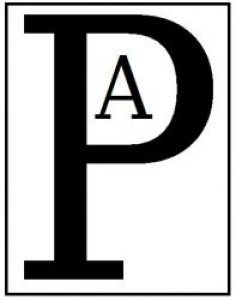
The Trucks-cartel with its record-setting fines, one of the very rare hybrid-settlement decisions and damages litigation across Europe, has been keeping hordes of lawyers busy for quite some while. With its recent decision, the European Court of Justice finally also confirmed the fine imposed on Scania, the only company which was not part of the settlement decision. The judgment reconfirms the legality of hybrid settlement decisions and includes interesting details on the determination of the geographic scope of cartels as well as on the single continuous infringement doctrine.
A quick recap: In 2016, the European Commission imposed its highest cartel fine ever, almost EUR 3 billion on five truck producers which colluded for more than 14 years. Another EUR 880 million were imposed on Scania one year later which did not agree to settle the investigation in the first place. In the decision, the Commission found that Scania had participated in collusive meetings and contacts within different forums and different levels, however, the objectives and the products concerned had remained the same. Three levels of collusive contacts were identified, namely a senior management level, a lower headquarter level and a German level.
Scania appealed the Commission decision, which was upheld by a General Court ruling in 2022. The ECJ now confirmed the first instance decision. Three grounds of the appeal are particularly worth being highlighted.
Hybrid settlement – one team is enough
The first ground concerned the alignment of the administrative process with the principle of impartiality. During the investigative phase, the very officials from the European Commission who oversaw the 2016 settlement were later tasked with imposing the infringement ruling on Scania. Scania contended in its appeal that this constituted a breach of impartiality and the presumption of innocence.
The ECJ upheld that the mere continuity of Commission officials overseeing both the settlement procedure and the final penalty decision for Scania does not necessarily compromise the Commission’s impartiality. Indeed, the ECJ argued that altering the Commission team would counteract the principles of sound administration and the expeditious handling of the administrative procedure. The General Court was presented with no evidence suggesting any partiality on the Commission’s part. Therefore, the ECJ rejected that ground as unfounded.
Unintended but still involved
By its second ground, Scania argued that it did not “intend” to take part in an infringement extending beyond Germany. According to Scania, the Commission (and the General Court) was wrong to solely rely on the content and the nature of the information exchange during the meetings to characterize the geographic scope.
The ECJ maintained that it was adequate for the Commission to demonstrate Scania’s involvement in meetings discussing information pertinent to the EEA. In the absence of evidence showcasing active opposition from Scania to receiving such information, the ECJ deemed this sufficient to establish Scania’s participation in the broader infringement.
Legal meetings as part of an overall infringement
Scania also contended that the Commission unfairly incorporated legitimate conduct to substantiate the concept of a ‘single and continuous infringement’ (SCI). The SCI doctrine enables the Commission to combine various anti-competitive practices into a ‘single’ infringement if they constitute part of an overarching scheme, known to the participants, and to which they intended to contribute.
In this light, the ECJ determined that otherwise legitimate conduct (such as neutral conversations) could serve as evidence for a broader transgression, provided there was a nexus to the overarching scheme to contravene competition law. The ECJ emphasized that the Commission is not obliged to demonstrate that all disputed acts constituting the single and continuous infringement individually qualify as separate infringements.
Food for Compliance
Apart from ending a six-year legal dispute and reconfirming the legality of hybrid settlement decisions as such, the ruling further supports one of the key learnings of every competition compliance training: “Listening-only” is not a sufficient defense for participants of meetings during which illegal topics are discussed. This is not only true for the participation of the infringement as such but also with a view to its geographic scope.
Photo by Startaê Team on Unsplash
